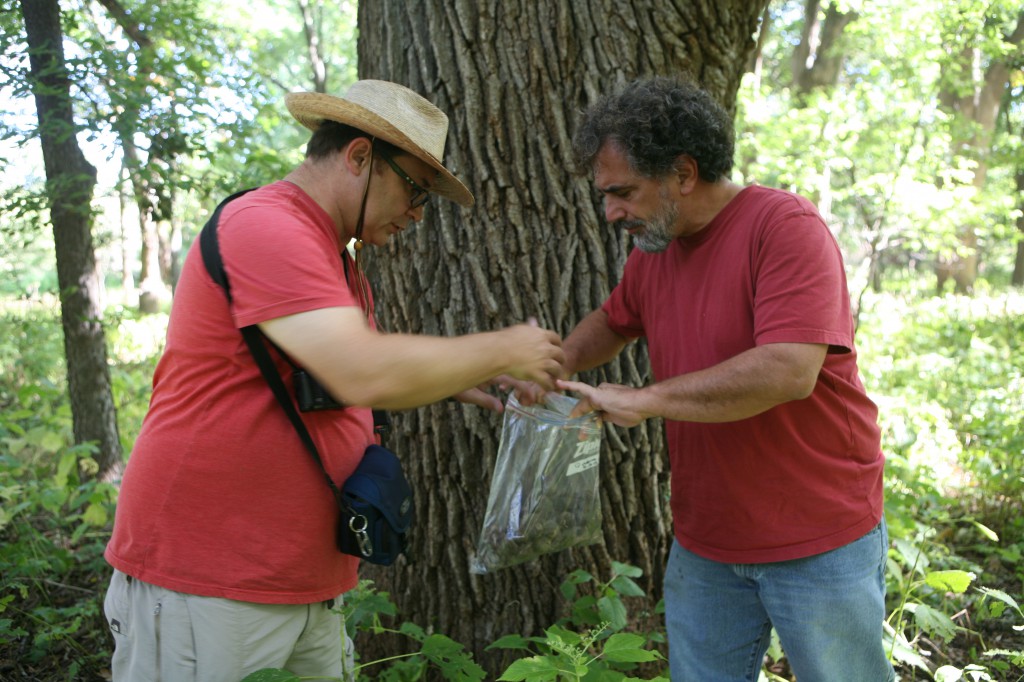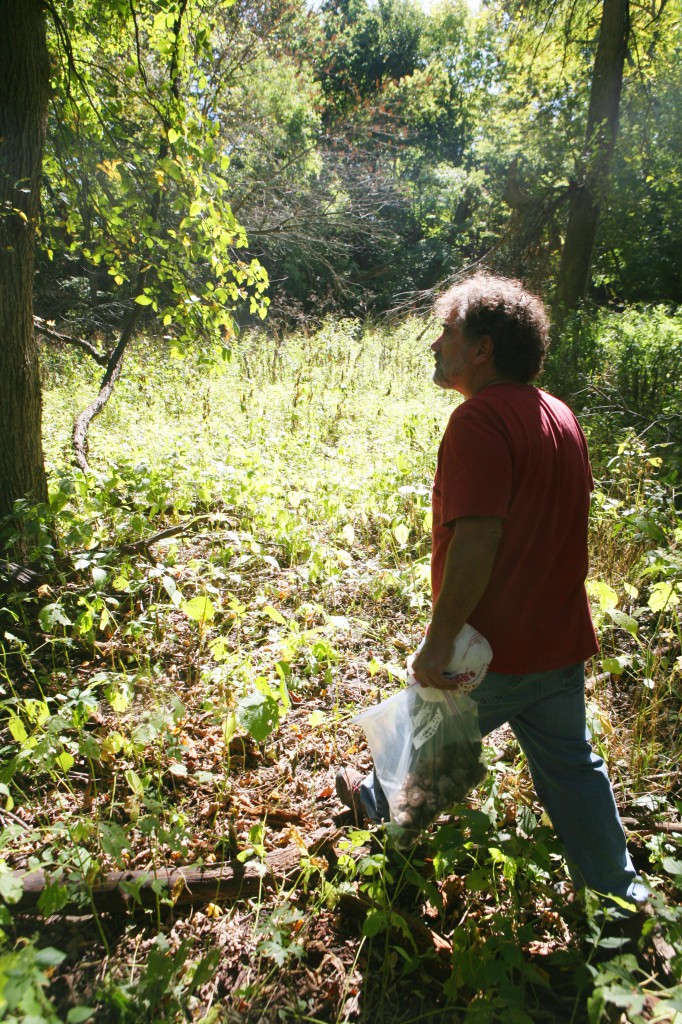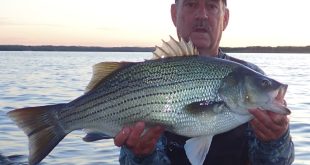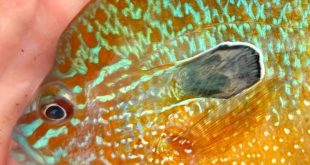“We need to find a tree that’s serious about this,” Jack Phillips said jokingly while collecting acorns last fall along a wooded trail outlining Pioneers Park in Lincoln. The bur oaks he walked beneath are tall and magnificent – and becoming increasingly rare.

Amy Kucera/NEBRASKAland Magazine
“The old bur oak is on the edge all the time,” Phillips said. “We should treat the species as if it were endangered, looking at the age of populations now.”
The collected acorns, minus the ones nibbled on while in search, will be used for future planting and educational purposes at the New Tree School, an exploration in trees with emphasis on the natural systems approaches to sustainable tree care, which he founded in 2003.
Phillips began his career in ecology “slumming around western Syria and the West Bank” in the 1980s, noting once richly forested areas of the Mediterranean region had been nearly all together destroyed, replaced by the hand-planted monoculture of almond trees along the landscape. “It forced the question, ‘When is a forest not a forest?’” Phillips said. As a graduate student in Cairo, he decided to skip an afternoon class to take a nap on a carpet within a Medieval mosque. When he awoke, he was surrounded by a teacher and his students, as if no one noticed him, they continued on their lesson, speaking a language he did not know.
In this moment, a revelation occurred, in which he discovered the power of immersion as education and paired it with his palpable passion for nature and desire to teach, a path he continues on today.
“It is about learning through intimacy, by becoming what you are studying,” he explained. “Through this immersion, the experience is the root of knowing.”
After studying with renowned plant pathologist Alex Shigo, he developed the New Tree School in order to encourage the planting and preservation of native trees effectively and economically, as well as to share his discovery of deep ecology through immersion. This would include the development of community and volunteer tree planting projects, tree health and safety evaluations, tree inventories and biological surveys, native landscape and urban nature center design, as well as through creative arts such as literature.

Amy Kucera/NEBRASKAland Magazine
In an ode to the oak nation, his recent book published by Praire Fire Press, Bur Oak Manifesto: Seeking Nature and Planting Trees in the Great Plains, is a collection of essays weaving his ecological experience with language and culture to reveal a mystic glimpse of an ancient ecosystem, and the power of human connections to protect the vital and vanishing wild. A lively storyteller and educator, often quoting naturalist Henry David Thoreau, Phillips has a remarkable sense of the significance of native trees on the landscape.
“Trees contribute to our sense of place,” Phillips said. “Find a big wild tree, and spend time there.
For more information, visit the New Tree School at Newtreeschool.wordpress.com.
 Nebraskaland Magazine
Nebraskaland Magazine



